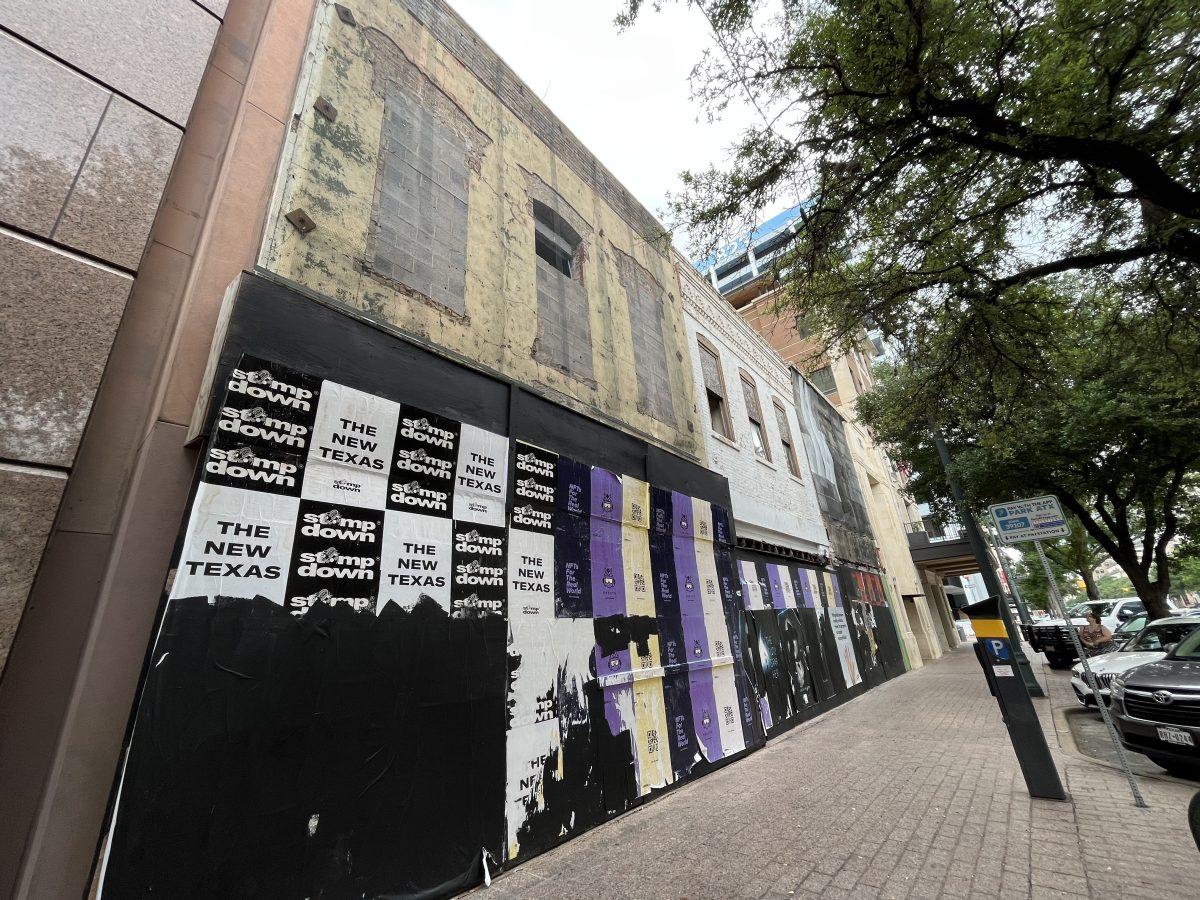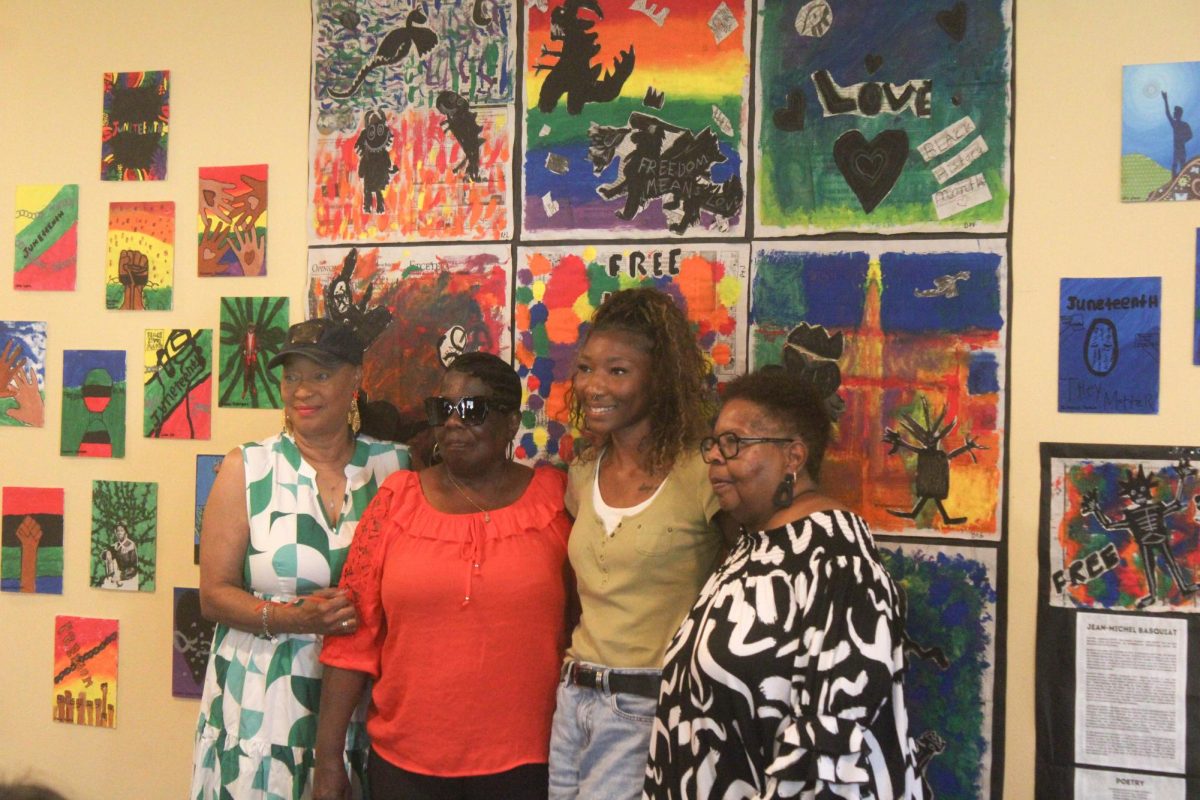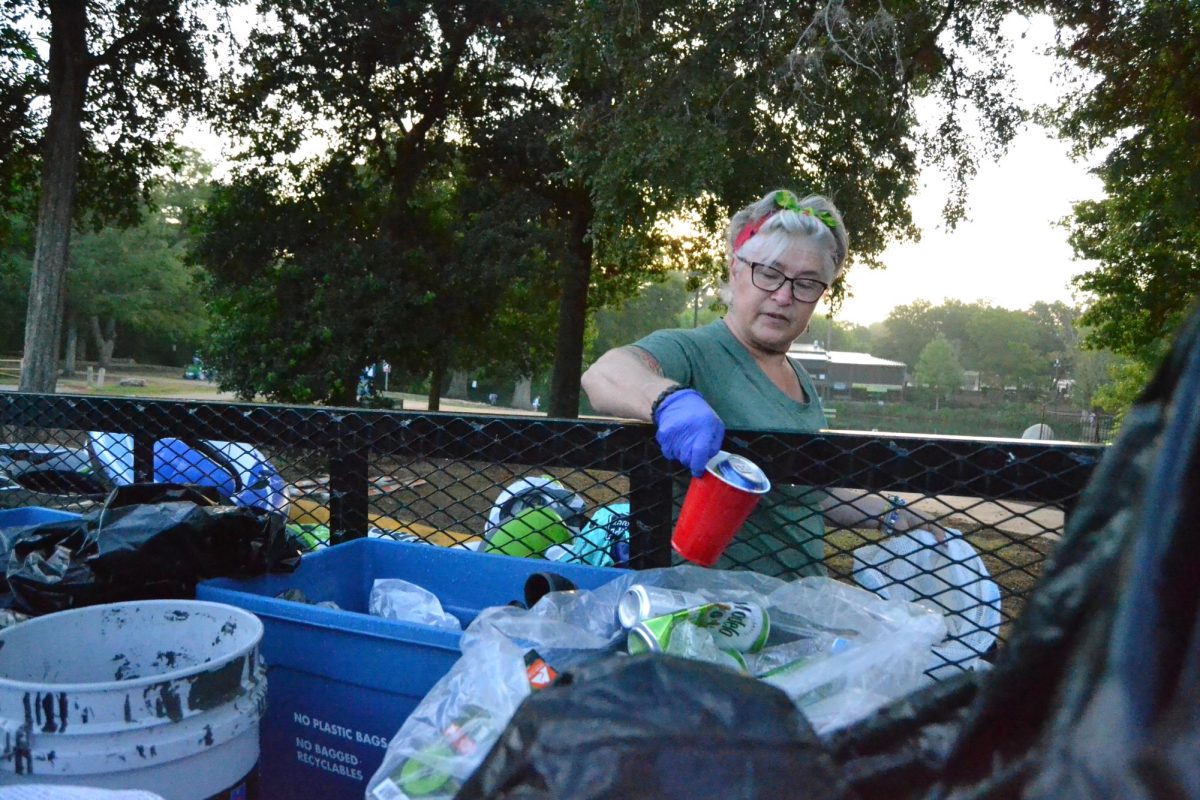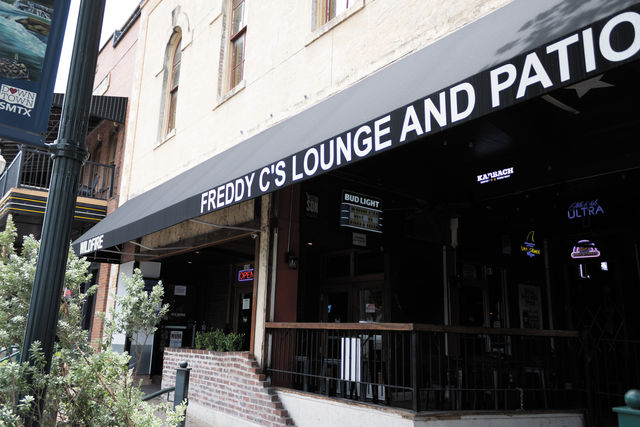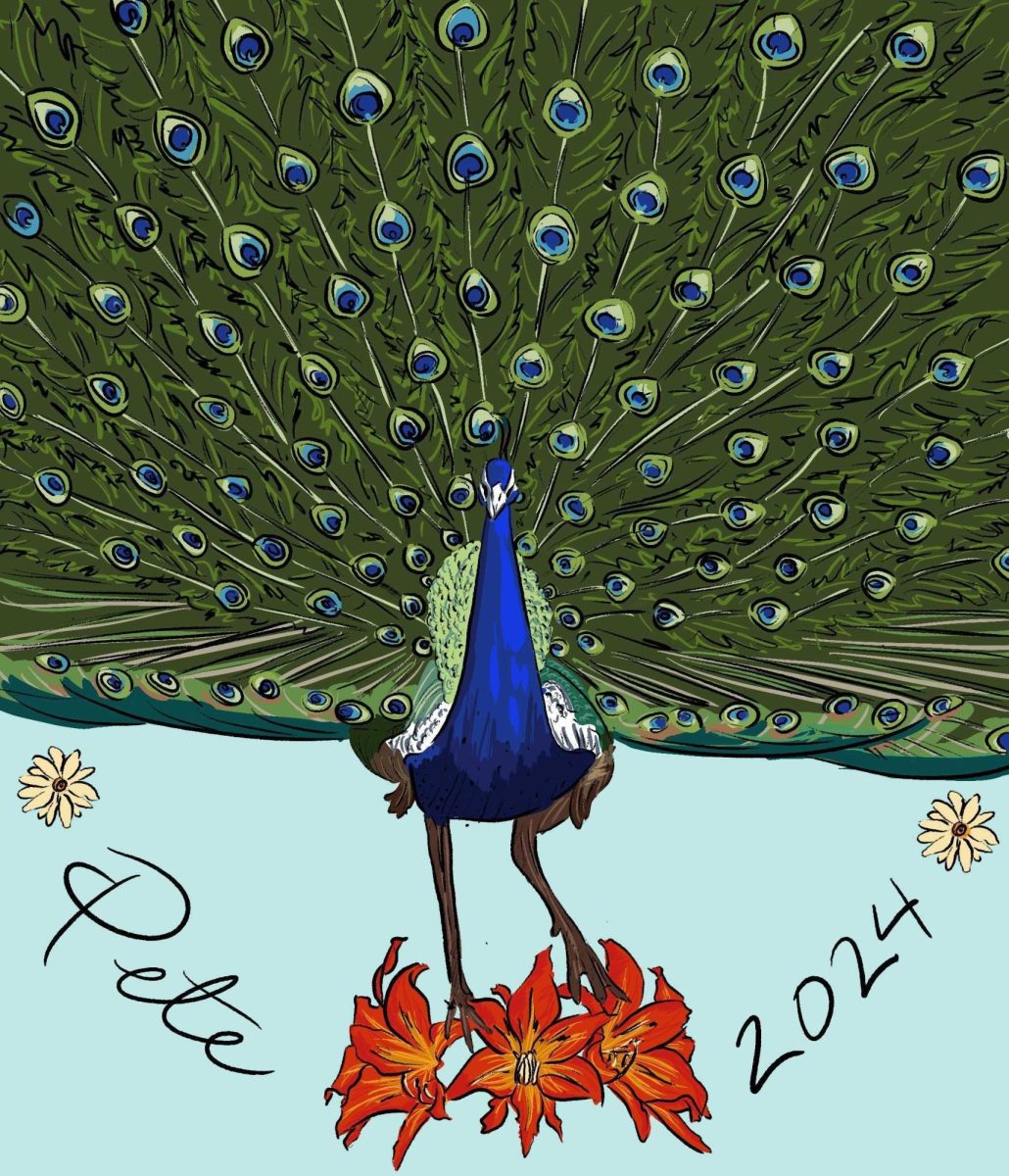Just two blocks south of the Texas Capitol, people walk by a vacant building every day, not giving it a second glance. Once a diverse place of celebration and inclusion, The Manhattan Club is now a room that collects dust.
The history of Austin’s first gay-friendly public space is rooted deep within the Manhattan Deli, a café owned by a Jewish couple in 1957 until its shutdown in 1969. The gay bar was located in a small backroom of the restaurant.
As part of their graduate seminar on local and community history, Texas State graduate students Amber Hullum and Railey Tassin shined a new light on the restaurant that became a safe haven for the LGBTQ+ community in the 1950s.
“It’s impossible to put into words how meaningful it is to see your history represented,” Tassin said. “Especially marginalized groups, where you only hear negative things about you throughout history.”
Ruby Oram, an assistant professor in the Department of History, gave her students the task to choose a topic that fell under what the Texas Historical Commission (THC) classifies as an under-told story, a story that has been underrepresented in history.
“The Texas Historical Commission has a program that fully funds historical markers for sites that are associated with marginalized history,” Oram said.
Hullum and Tassin began their research online in February 2021. They were on the lookout for LGBTQ+ establishments in Texas which was a challenge since those they found originated in the 1970s and 1980s and did not meet the 50-year rule, a guideline set by the THC that states something must be 50 years old or older to be given a historic designation.
In the end, it all came together. By looking through the Austin History Center archives and reaching out to Michael Barnes, a journalist for the Austin American Statesman who identifies with the queer community, they came across The Manhattan Club.
“It was a little difficult to find sources and put our narrative together,” Tassin said. “But I thought it was fun cause we’re historians. We love to go digging for information.”
In addition to going through archives and online articles, Hullum and Tassin were fortunate enough to get to speak with someone who lived to tell his own tales of The Manhattan Club, Randy Wicker. A well-known gay activist and author, Wicker was at the forefront of gay liberation movements in Austin and New York City where he witnessed the Stonewall riots.
Wicker was a student at the University of Texas at Austin in the mid-1950s and frequented The Manhattan Club. Hullum and Tassin learned from Wicker what the club looked like and what it was like living in Texas at the time.
“He was able to give us a bit of context on what it was like to walk in the restaurant as well as what gay life was like in the 1950s,” Hullum said.
The two were thrilled to get to speak to someone who was able to give visuals to their research, especially since many older generations are no longer around to give them insight. Tassin said there needs to be an urgency in talking to older generations who have lived through history; in having important conversations with them before it’s too late.
“There needs to be a concerted effort as soon as possible,” Tassin said. “Having oral interviews with anyone who’s willing to speak on these older spaces is important so we can learn more.”
Hullum said there is secrecy behind LBGTQ+ spaces like The Manhattan Club that they might never know about because those who lived through it are not around anymore.
“The only way to know about these places is by word of mouth and talking to the elderly if they even survived the AIDS epidemic,” Hullum said. “Those places might die with them and we won’t know unless we’re able to get down and do the historical dirty work.”
Oram wants her students to get involved with and enjoy the projects they work on; to dive deep into the histories of places like The Manhattan Club. She believes it’s important to not just teach history but to make and become part of history as well.
Oram, who helped guide her graduate students on these projects, agrees with her students that is it important for the younger generations to get involved and learn about the history that is relevant, current and important.
“History should be the history of all of us. I think most students don’t know that history can be about social history too,” Oram said. “We can’t relate to a military battle but we all can relate to social movements of men, women, queer communities, immigrants and more. We live through these social movements and people can see themselves in history.”
Hullum and Tassin saw how important it was to put history into practice and strived to get a historical marker made for The Manhattan Club. They were approved for a marker this year and are hoping to see it in front of the building this fall.
This will be the first time the state of Texas has granted a historical designation to something associated with queer history, and Oram hopes this motivates people to ensure it’s not the last.
Tassin believes that the story of The Manhattan Club brings positivity to a history that was cloaked in secrecy and negativity, and that it’s essential for LGBTQ+ youth to recognize these places.
“We’re sharing a story of a positive place where a community was fostered, people met and was a safe haven,” Tassin said. “It’s a positive little beacon and it means a lot to see our history represented.”
Texas State students uncover history behind Austin’s first gay-friendly space
June 7, 2022
Donate to The University Star
Your donation will support the student journalists of Texas State University. Your contribution will allow us to purchase equipment and cover our annual website hosting costs.











